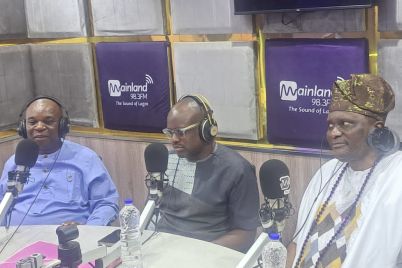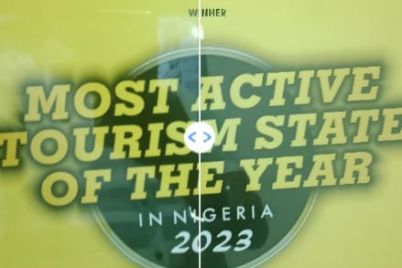
By Garzali Sale
The recent article by Punch Newspaper titled “Jigawa Mandates Hijab Wear for Female Security Operatives” (April 16, 2025) is not just a gross misrepresentation of facts—it is a deliberate act of sensationalism that undermines journalistic integrity, distorts public understanding, and stokes unnecessary religious tensions. This reckless reportage demands a fierce correction. The Jigawa State Government’s decision to allow female security personnel to wear hijabs as part of a broader community-driven security initiative has been twisted into a false narrative of coercion, ignoring the nuanced, inclusive, and progressive nature of the policy. Here’s why Punch’s article is not only misleading but dangerously irresponsible.
- Punch’s Headline: A Masterclass in Misleading Framing
The headline’s use of the word “mandates” implies a blanket imposition of religious attire on all security personnel, a claim that is blatantly false. The Jigawa State Government’s directive explicitly applies only to female operatives working under three private security companies recruited to protect schools, hospitals, and public infrastructure—not national security agencies like the police or military .
By omitting critical context—that these are local, community-based recruits under private firms—Punch intentionally misleads readers into believing the policy affects federal or state-wide security institutions. This is a malicious distortion. The government’s decision, as repeatedly clarified by Commissioner Sagir Musa, aims to accommodate religious and cultural practices for women who voluntarily joined these roles, fostering inclusivity and dignity in the workplace .
Compare Punch’s framing with accurate reports from Leadership NG (“Jigawa Approves Hijab for Female Security Personnel”) which emphasizes accommodation, not compulsion . Punch’s choice of language—“mandates”—is a deliberate provocation, weaponizing religious sensitivity for clicks. - Ignoring the Bigger Picture: Security, Jobs, and Community Empowerment. Punch’s article reduces a multifaceted initiative to a single, sensationalized detail. The recruitment of 9,969–9,972 youths (figures vary slightly across reports) is part of Jigawa’s comprehensive security strategy to protect schools, hospitals, and water facilities amid rising national insecurity. This program also addresses unemployment by creating jobs for young people, particularly in rural communities . Governor Umar Namadi emphasized that the guards are meant to work with communities, not replace them, ensuring localized security solutions .
The hijab allowance is a minor yet meaningful component of this policy—one that respects the rights of Muslim women to practice their faith while contributing to public safety. By fixating on this detail, Punch dismisses the program’s broader successes which include job creation to over 9,900 youths employed, including university graduates .
Infrastructure protection: Guards deployed to 1,500+ schools, hospitals, and courts. Economic investment: ₦3.4 billion allocated annually to sustain the initiative . Punch’s failure to acknowledge these achievements reveals a bias against reporting progress in Northern Nigeria—a region often unfairly stereotyped in national media. - Punch’s Hypocrisy: Selective Outrage and Ethical Double Standards. Punch would ignore any anti Islamic laws from the south but frown at any inclusive efforts to allow for Islamic women to grow and be the 21st century women that they are. This double standard reeks of Islamophobia and regional prejudice. Furthermore, Punch’s article conveniently ignores the government’s parallel initiatives, such as:
- Funding ₦516 million for medical students in Cyprus .
- Launching the Jigawa State Creativity and Innovation Week to empower youth in tech and arts .
These omissions suggest an agenda to vilify Jigawa’s government rather than inform the public.
- The Danger of Punch’s Narrative: Fueling Division in a Fragile Nation
Nigeria is already grappling with sectarian tensions, banditry, and misinformation. Punch’s inflammatory reporting risks exacerbating these fissures. By framing a localized, consensual policy as a “mandate,” the article implies that Jigawa is imposing Sharia law on national institutions—a toxic falsehood that could incite backlash against Muslim communities.
Commissioner Sagir Musa explicitly stated that the hijab directive aligns with “workplace policies that uphold modesty, inclusion, and dignity” . This is not coercion; it is respect for diversity. Contrast this with Punch’s insinuation of tyranny, and the malice becomes clear. - A Call for Accountability: Punch Must Retract and Apologize. Failure to do so will confirm suspicions that Punch prioritizes sensationalism over truth—a disgrace to the profession. Punch should know that yellow journalism is costly. It can cost the establishment its audienceship from especially the Jigawans.
Punch’s article is more than a mistake; it is a calculated assault on Jigawa’s progress. By weaponizing religious symbolism, the newspaper has endangered community trust in security initiatives and amplified harmful stereotypes.
Thank you for reading


